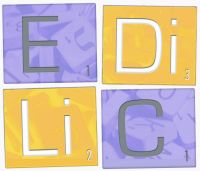Speaker
Description
In the United States, beliefs about language have undergone major paradigm shifts throughout the 20th century. Many researchers have departed from the monolithic vision of languages as discrete entities to put forward an understanding of language as historically-culturally, politically and socially situated practices (Heller 2007). Yet, in this nation of multilingual immigrants, monolingual ideologies and assimilationist tendencies dominate, and educational institutions offer few opportunities to explore and value the rich potential of the cultural and linguistic diversity of the country.
Despite greater awareness of the complexity and heterogeneity of repertoires and literacies that students bring to the classroom, (New London Group, 1996) changes in language education have been remarkably slow. Critical approaches to language phenomena are gaining ground, but at the margins of the field.
Community-Engaged Scholarship (CES) is one promising practice. CES is a transnational and transdisciplinary field that fosters opportunities for students, faculty and community partners to co-produce knowledge, address contemporary social issues, and contribute to the public good (Da Cruz, 2018). CES as applied by the practitioners represented in this symposium connects academic teaching and research with community knowledge and practice, resting on commitments to: the aspiration of reciprocity among students, faculty, and community partners; students’ preparation for and reflection upon theoretical and historical foundations of ethical community-engaged scholarship; and the co-creation of knowledge and diverse sources of expertise within and beyond the academy.
This symposium will present ways in which combining community engagement with critical language awareness (CLA) approaches (Dubreil & Thorne, 2017; Leeman & Serafini, 2016) can invite students to question their assumptions about language, increase their understanding of the complexities of situations and practices of multilingual speakers and help them reflect on the dynamics of power and identity.
Content/contenu/Inhalt 2
Aux États-Unis, les représentations sur les langues ont connu d'importants changements de paradigmes tout au long du vingtième siècle. De nombreux chercheurs ont abandonné la vision monolithique des langues en tant qu'entités distinctes pour proposer une conception des activités langagières comme pratiques historiquement, culturellement, politiquement et socialement situées (Heller, 2007).
Cependant, dans cette nation d'immigrants multilingues, les idéologies monolingues et les tendances assimilationnistes dominent, et les institutions éducatives offrent peu d'opportunités pour explorer et valoriser le riche potentiel de la diversité culturelle et linguistique du pays.
Malgré une prise de conscience accrue de la complexité et de l'hétérogénéité des répertoires et des littératies que les étudiants amènent en classe (New London Group, 1996), les changements dans l'éducation linguistique ont été remarquablement lents. Les approches critiques des phénomènes linguistiques gagnent du terrain, mais restent à la marge du domaine.
Le Community-Engaged Scholarship (CES) est une pratique prometteuse. Le CES est un champ transnational et transdisciplinaire qui offre des opportunités pour les étudiants, les enseignants et les partenaires communautaires de coproduire des connaissances, d'aborder des enjeux sociaux contemporains et de contribuer au bien commun (Da Cruz, 2018). Il relie l'enseignement universitaire et la recherche aux connaissances et pratiques communautaires et repose sur des engagements réciproques. Il exige la préparation et la réflexion sur les fondements théoriques et historiques d'une recherche éthique engagée dans la communauté et vise la cocréation de sources d'expertise diverses au sein et au-delà du monde universitaire.
Ce symposium présentera la façon dont la combinaison de l'engagement communautaire et des approches critiques des langues (Dubreil & Thorne, 2017 ; Leeman & Serafini, 2016) peut inviter les étudiants à interroger leurs représentations des langues, à approfondir leur compréhension des complexités des situations et des pratiques des locuteurs multilingues, et les aider à réfléchir aux dynamiques de pouvoir et d'identité.
References
Da Cruz, C. G. (2018). Community-engaged scholarship: Toward a shared understanding of practice. The Review of Higher Education, 41(2), 147-167.
Dubreil, S. & Thorne, S. L. (Eds.). (2017). Engaging the World: Social Pedagogies and Language Learning. Cengage.
Heller, M. (Ed.) (2007). Bilingualism: a social approach. Macmillan.
Leeman, J. & Serafini, E.J. (2016). Sociolinguistics for heritage language educators and students: A model for critical translingual competence. In M. Fairclough & S. Beaudrie (Eds.), Innovative approaches in HL pedagogy: From research to practice (pp. 56-79). Georgetown University Press.
New London Group. 1996. A pedagogy of multiliteracies: Designing social futures. Harvard Educational Review 66(1), 60-92.
| Only for symposia / Seulement pour symposiums / Nur für Symposien | Plurilingual literacies, community engagement, and critical language awareness |
|---|---|
| Title/ titre/Titel 2 | Littératies plurilingues, engagement communautaire et approches critiques des langues |

